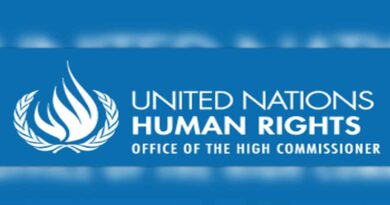Delhi Riots: Supreme Court Issues Notice on Bail Pleas of Umar Khalid, Others; Hearing on Oct 7
(By: Syed Ali Taher Abedi)
New Delhi, September 22: The Supreme Court on Monday issued notices to the Delhi Police on bail pleas filed by former JNU students Umar Khalid, Sharjeel Imam, Haider, Gulfisha Fatima, and activist Shafi-ur-Rehman in connection with the alleged larger conspiracy behind the 2020 Delhi riots.
A Bench comprising Justice Arvind Kumar and Justice N.V. Anjaria took up the matter today and directed the Delhi Police to respond to the applications seeking interim bail. The case will now be heard on October 7.
At the very outset, Justice Kumar extended an apology for the delay in hearing the matter last Friday, explaining that the case could not be taken up as his then-bench partner, Justice Manmohan, chose to recuse himself due to his past professional association with Senior Advocate Kapil Sibal, who is appearing for the petitioners.
Senior Advocates Kapil Sibal, Abhishek Manu Singhvi, and Siddharth Dave appeared on behalf of the petitioners. Singhvi submitted before the court that the petitioners are students and have been incarcerated for nearly five years, despite no substantial progress in the trial. He stressed that the accused were part of a peaceful agitation against the Citizenship Amendment Act (CAA) in 2019–2020 and that their continued detention amounts to pre-trial punishment.
The petitioners are facing charges under the Unlawful Activities (Prevention) Act (UAPA) for allegedly being part of a “larger conspiracy” that purportedly led to the February 2020 communal riots in Delhi. The Delhi High Court, in a judgment dated September 2, 2025, had denied them bail, upholding the prosecution’s case that their activities went beyond mere dissent and amounted to unlawful conspiracy.
The Supreme Court’s decision to issue notice signals that the top court is willing to examine the matter closely, particularly in light of the prolonged incarceration and arguments surrounding freedom of speech and the criminalization of dissent.
The next hearing on October 7 is expected to be crucial, as the court may consider interim relief for the petitioners pending a detailed examination of the case.




